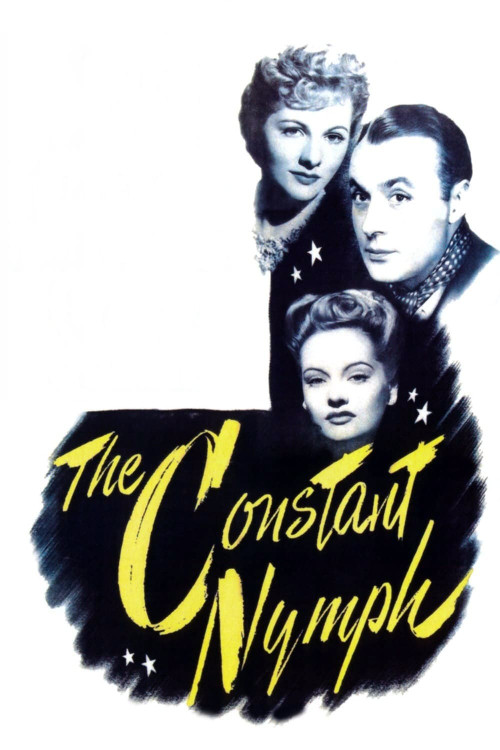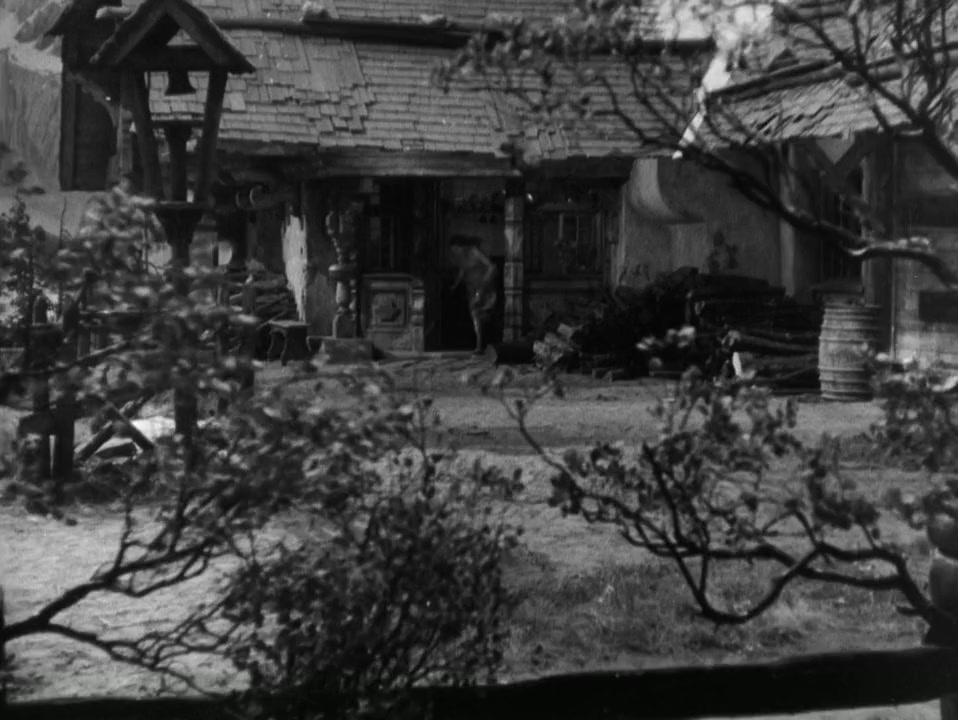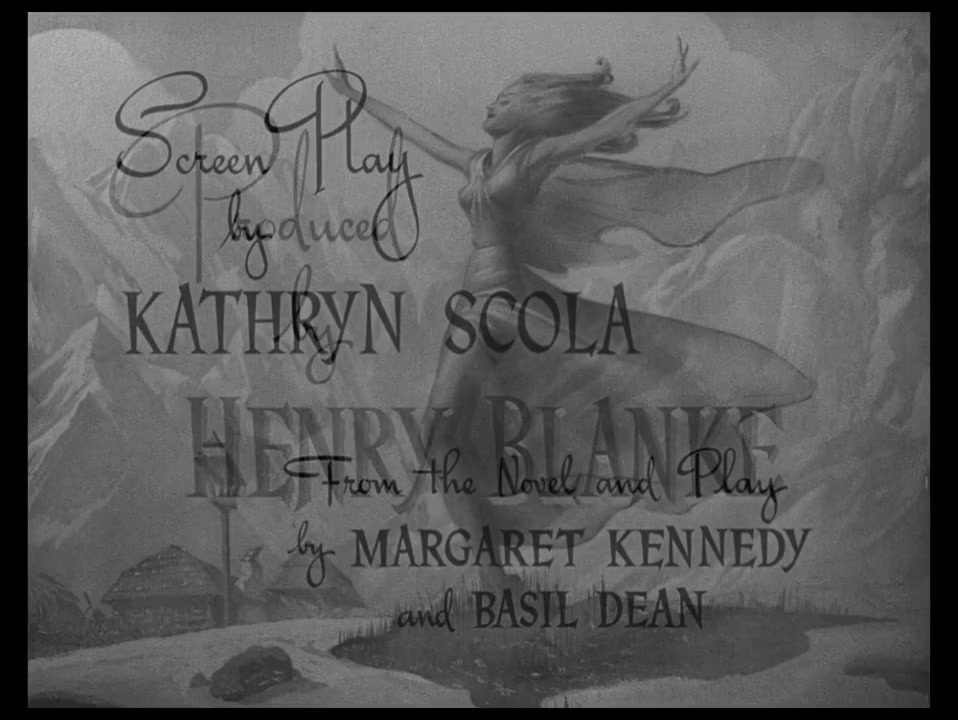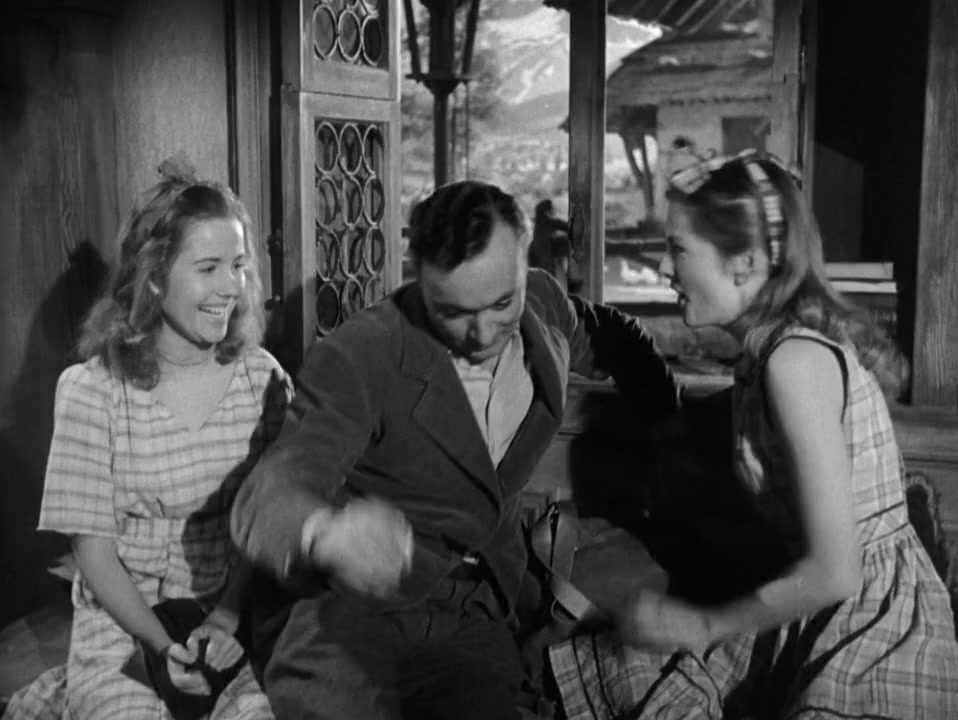
- Year: 1943
- Released: 10 Jul 1943
- Country: United States
- Adwords: Nominated for 1 Oscar. 1 win & 1 nomination total
- IMDb: https://www.imdb.com/title/tt0035751/
- Rotten Tomatoes: https://www.rottentomatoes.com/m/the_constant_nymph
- Metacritics:
- Available in: 720p, 1080p,
- Language: English
- MPA Rating: Passed
- Genre: Drama, Music, Mystery
- Runtime: 112 min
- Writer: Kathryn Scola, Margaret Kennedy, Basil Dean
- Director: Edmund Goulding
- Cast: Charles Boyer, Joan Fontaine, Brenda Marshall
- Keywords: love triangle, jealousy, composer, tyrol, musician,
 | 6.7/10 |
The Constant Nymph Storyline
Fourteen-year-old Tessa is hopelessly in love with handsome composer Lewis Dodd, a family friend. Lewis adores Tessa, but has never shown any romantic feelings toward her. When Tessa’s father dies, Lewis contacts her late mother’s wealthy family so they’ll take care of Tessa and her sisters. Lewis becomes taken with Tessa’s haughty cousin Florence and the two soon marry and head off for Florence’s estate in England. Meanwhile, Florence sends Tessa and her sister Paula off to finishing school. The girls run away from school and Tessa moves in with Florence and Louis. Florence soon becomes consumed with jealousy over the bond between her husband and Tessa.—Daniel Bubbeo
The Constant Nymph Photos



The Constant Nymph Torrents Download
| 720p | web | 1 GB | magnet:?xt=urn:btih:901BD3AF0B7C97BE8FAEBF388F961552B528CA81 | |
| 1080p | web | 1.86 GB | magnet:?xt=urn:btih:82906A059E78B95AE126BF8E56679A1D6F6F9369 |
The Constant Nymph Subtitles Download
| English | subtitle The.Constant.Nymph.1943.1080p.WEB-DL.DD2.0.H.264-SbR.mkv |
The Constant Nymph Movie Reviews
A Delicate Matter For The Code
In this last and only American version of The Constant Nymph the omnipresent Code had to be dealt with rather delicately in order for this film to get to the big screen. It involves nothing less than a middle aged man falling in love with an underage girl. No wonder the original casting of Errol Flynn was scratched by Jack Warner.
In 1943 as Robert Osborne said rather delicately himself, Flynn was having some ‘legal problems’. He sure was, he was facing a charge of statutory rape and was fighting for his career. No wonder he was scratched and Charles Boyer substituted as the pianist/composer. Even without the rape charge I don’t Flynn would have been suitable casting in that role in any event.
But it was Joan Fontaine who got the Oscar recognition with a nomination for Best Actress playing a teenager of barely legal age who has a congenital heart problem and who charms Boyer. In the original novel and the play made from it, Boyer’s character actually runs off with the Fontaine character.
Some of the same territory was tread on by Billy Wilder in The Major And The Minor, but Ginger Rogers was only pretending to be an adolescent.
Boyer meets Fontaine and her siblings Brenda Marshall, Jean Muir, and Joyce Reynolds at the home of their father Montagu Love. When he dies the girls go to their uncle Charles Coburn to live, except Marshall who marries Peter Lorre. That in itself is something, how often does Peter Lorre get the girl? Boyer marries Coburn’s daughter Alexis Smith, but Smith senses something wrong and develops a jealousy of Fontaine. Turns out that while Boyer doesn’t do anything, she’s right to be suspicious.
The novel by Margaret Kennedy was turned into a play by Basil Dean and debuted in London with no less than Noel Coward and Edna Best in the leads. It ran 148 performances on Broadway in the 1926-27 season and two film versions across the pond were made, a silent with Ivor Novello and another sound version that starred Brian Aherne who would later marry Joan Fontaine. I’d be curious to see how the whole May/September romance was handled there.
Fontaine lost the Oscar that year to newcomer Jennifer Jones who was also playing a juvenile of a different kind in The Song Of Bernadette.
The Constant Nymph is a strange yet curiously winning film. One wonders how the story would be done today in a film.
May – December Cerebral Romance
Based on a novel by Margaret Kennedy, this film The Constant Nymph, starring Charles Boyer and Joan Fontaine, is a typical 1940’s studio retelling of a classic style romance, the story of a fragile young girl’s infatuation and adoration for an older, attractive musician.
While I think the production values and the sensuality of Letter From An Unknown Woman are superior to this film, this story also manages to captivate the viewer with its own brooding romanticism, solid performances, and beautiful music by Erich Korngold (Amazon sells CDs of this music in several movie soundtrack anthologies). Thankfully my copy of this film is pristine and that improves one’s enjoyment of it.
Striking Alexis Smith as the unloved wife delivers a mighty performance, and almost steals the picture from Joan Fontaine and Charles Boyer. The supporting actors are also very good, including Charles Coburn, Peter Lorre, Brenda Marshall, Dame May Witty, and Jean Muir. I admit I was a bit frustrated by the character of the musician played by Charles Boyer. Men who marry women just because they are attracted to them and not because they love them irk me to no end. That was the situation here and it sets the viewer up for a very frustrating experience by the end of the picture.
The Constant Nympth is a decent romantic melodrama, with a very touching conclusion, but it’s not outstanding or unforgettable, like Letter From An Unknown Woman surely is.
Stunning Korngold score but disappointing in every other respect…
Having heard for years that THE CONSTANT NYMPH was one of Joan Fontaine’s favorite performances and knowing that Erich Wolfgang Korngold wrote the score for it, I looked forward to the film with much anticipation when I finally had a chance to see it.
Unfortunately, aside from good performances from Charles Boyer and Alexis Smith, I found Miss Fontaine’s Tessa just too cloying and simpering to be realistic. I thought she played the awkwardness of youth much better in LETTER FROM AN UNKNOWN WOMAN, a really much more solid and forceful role. Tessa just seems to be a girl inordinately fond of a musician who doesn’t realize, until too late, what the girl means to him.
Oddly enough, the scenes between Boyer and Alexis Smith are more developed than any of the quieter scenes between Boyer and Fontaine. Smith makes the wife a sympathetic creature because her jealousy is easy to comprehend.
An altogether disappointing film aside from a glorious score by Korngold that leads to the final concerto where he fully develops the love theme for Boyer and Fontaine.
Unfortunately, most of the sets for the country scenes early in the story look like painted backdrops so that one never gets the feeling that Tessa’s environment is a real one. Nor does the story give Joan Fontaine ample opportunity to fully flesh out her character since she is missing from much of the middle portion of the film.
For a great Fontaine performance, I suggest viewing LETTER FROM AN UNKNOWN WOMAN with Joan at her best.



